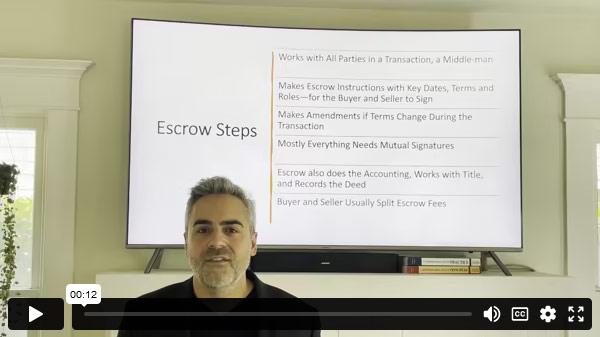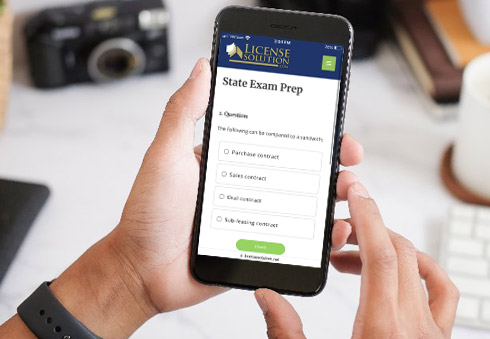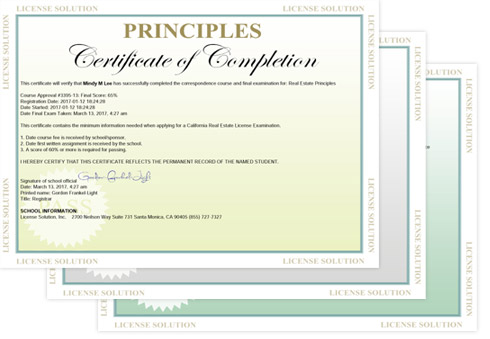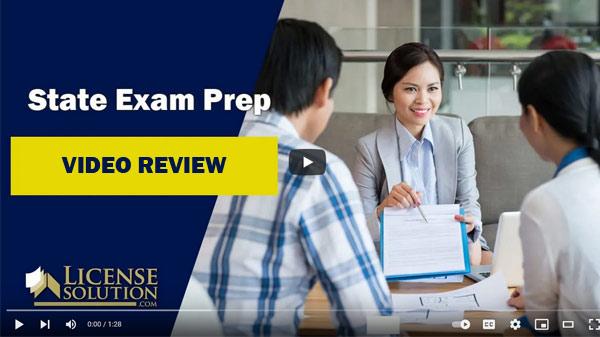If you have your California real estate license or are well on your way to obtaining it, it is likely that you already know that “FSBO” (pronounced “Fizbo”) stands for “For Sale by Owner.” FSBO refers to when homeowners are attempting to sell their home themselves, without the aid of a real estate listing agent or broker, so they can avoid having to pay the commission that is normally paid by the seller to the listing broker’s office. The typical commission on a home sale is five or six percent: half going to the listing agent/broker and half to the buyer’s agent/broker. That can be a sizable chunk of money on a California home.

According to a study by the National Association of Realtors (“NAR”), 8% of all home sales nationwide in 2018 were FSBOs. And the typical FSBO home sold for $217,900 compared to $295,000 for agent-assisted home sales. That is more than a $77,000 difference in price (about 35%). Even after a 6% commission (i.e., .06 x $295,000 = $17,700; $8,850 to each broker’s office), the seller would be better off financially using a listing agent. Why? The $295,000 selling price minus the $17,700 commission, would still yield $277,300 to the seller. That is $59,400 or 27% more than the seller would have gotten as a FSBO.
The Power of Persuasion
But how can a real estate agent convince a homeowner that he or she would do better financially and otherwise by listing his or her home with an agent? (And, of course, not just any agent, but with you?)
First, keep in mind these additional statistics from NAR and use them to your (and your potential client’s) advantage when you try to persuade a homeowner to give up on FSBO and instead list with you:
- Less than 10% of FSBOs succeed
- 46% of FSBOs are not actively marketed
- Only 6% of FSBOs are on the Multiple Listing Service (MLS). (Why? Because you need a real estate agent to be able to post it there!)
- Only 11% of FSBOs had an open house
And FSBO sellers said there were difficult aspects of selling their homes on their own. The most difficult tasks reported were:
- Repairing/Fixing up the home for sale
- Understanding and completing the paperwork
- Figuring out the right price to ask
- Selling within the planned length of time
- Having enough time to devote to the process
By pointing out these stats and focusing the seller’s attention on why your services are invaluable, you are likely to come away with that listing.
Here are a few key reasons why FSBOs typically fail and why the homeowner needs a listing agent:
Sellers often do not prepare the property for sale adequately. A real estate agent will make recommendations to the seller about such things as de-cluttering the home, having it professionally cleaned, making repairs, and painting and decorating. The agent may even suggest hiring a staging company to make the home look its best to secure the highest offers.
- Unless a seller is a marketing maven, most do not even know how to advertise their property. As a real estate agent, you know the ins and outs of real estate marketing. As you know, the MLS is key. And there are other marketing channels and the use of social media of which a seller is generally unaware.
- Most sellers are not equipped to “entertain” prospective buyers, or even to tell the difference between a serious potential buyer and a “looky loo.” Real estate agents have the experience and ask the right questions to make the determination as to who a qualified buyer (serious and financially capable) is and who may not be qualified (just shopping and has not been approved for financing).
- An agent/broker representing a seller will hold a “brokers’ open,” which is an open house for buyers’ agents to come and view the property. A seller who is attempting to sell his or her own home is likely unfamiliar with this type of event. But even if the seller holds a brokers’ open, this is where buyers’ agents will ask the tough questions that homeowners are not always prepared to answer, such as those seeking specific information about the electrical system, the plumbing system, the foundation, the HVAC system, what construction has been done on the home, etc.
- A FSBO seller is not always familiar with the inspection process. After an inspection, how will the seller address any issues that have been raised in the inspector’s report? What if the seller disagrees that there is an issue, but the prospective buyer says it is a dealbreaker? A real estate agent can offer her expertise in negotiating a successful outcome so that the deal does not fall apart.
As discussed above, according to NAR, agent-sold homes typically sell for more than FSBO homes – often a lot more — and the difference is enough to not only cover the commission but to also allow the sellers to walk away with money in their pocket. A discussion that includes that fact plus all the variables above are factors to emphasize when trying to convert the FSBO listing.
Some other tips to get the listing (borrowed from Become a Local Leader at https://www.becomealocalleader.com/marketing-tips):
Do not approach FSBO listings on the MLS; there are many FSBOs that are not listed there, and those who are, have already been solicited to. You do not want to be just another agent.
- Check newspaper listings, Craigslist, and yard signage for prospective FSBO opportunities. They are more eager to sell because they are spending money to advertise.
- It is important to meet with your prospect in person first. Most of your fellow agents will call them. You do not want to be another annoying phone call. Go the extra mile and visit them in person if possible.
- Expect to meet with your prospect three to five times before you get the listing.
Your consistency, persistence, and power of persuasion will pay off with the reward of a new client in the end.

 Sellers often do not prepare the property for sale adequately. A real estate agent will make recommendations to the seller about such things as de-cluttering the home, having it professionally cleaned, making repairs, and painting and decorating. The agent may even suggest hiring a staging company to make the home look its best to secure the highest offers.
Sellers often do not prepare the property for sale adequately. A real estate agent will make recommendations to the seller about such things as de-cluttering the home, having it professionally cleaned, making repairs, and painting and decorating. The agent may even suggest hiring a staging company to make the home look its best to secure the highest offers.









